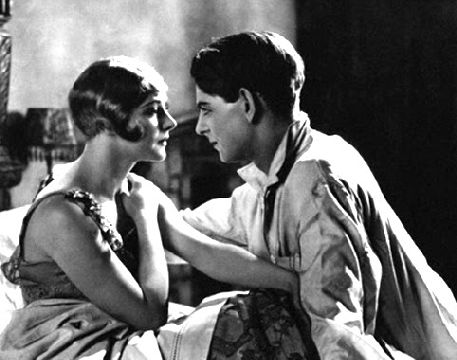Easy Virtue (1928) 

Director: Alfred Hitchcock
Cast: Isabel Jeans, Franklin Dyall, Eric Bransby Williams
Synopsis: A divorcée hides her scandalous past from her new husband and his family.
Even for a silent film the subject matter of this melodrama from Hitchcock is badly dated, bearing no relevance to the modern world in which marriages might as well be measured in months as years. Isabel Jeans plays the ‘notorious’ Larita Filton, wife of a drunken cad who takes his cane to the portrait artist he mistakenly believes to be his wife’s lover. This incident, framed at the start of Easy Virtue by the subsequent high-profile divorce case, is by far the most interesting part of the film, thanks largely to its inventive camera-work and use of match cutting. But once the lady vanishes to France following the case and accepts the marriage proposal of the somewhat young and innocent John Whittaker (Robert Irvine), who is clearly the wrong man for her, things slow to a crawl and Hitchcock’s innovative use of camera and editing evaporate, leaving us with a dull romantic melodrama that hardly keeps us spellbound and which would, without a shadow of a doubt, be forgotten today had it not been helmed by the great man.
Isabel Jeans plays the luckless Larita and she’s quite good at it. Despite being portrayed as a victim throughout, you sense from her depiction that she isn’t quite the angel she might have been. Violet Farebrother is also memorable as Larita’s mistrusting new mother-in-law who has the suspicion, as all Mothers-in-law do, that her daughter-in-law just isn’t good enough for her insipid son (blandly portrayed by Robin Irvine, husband of Isabel Jean’s real-life sister Ursula) and concocts a family plot to sabotage the marriage and oust her from his affections. Other than these two, and those early courtroom moments, there’s little to recommend this modest film, and its short running time seems a lot, lot longer than it really is.
(Reviewed 31st January 2008)
httpv://www.youtube.com/watch?v=Vi1Hz4HP3QY
